She ditched her elite networks to build a $250k biz
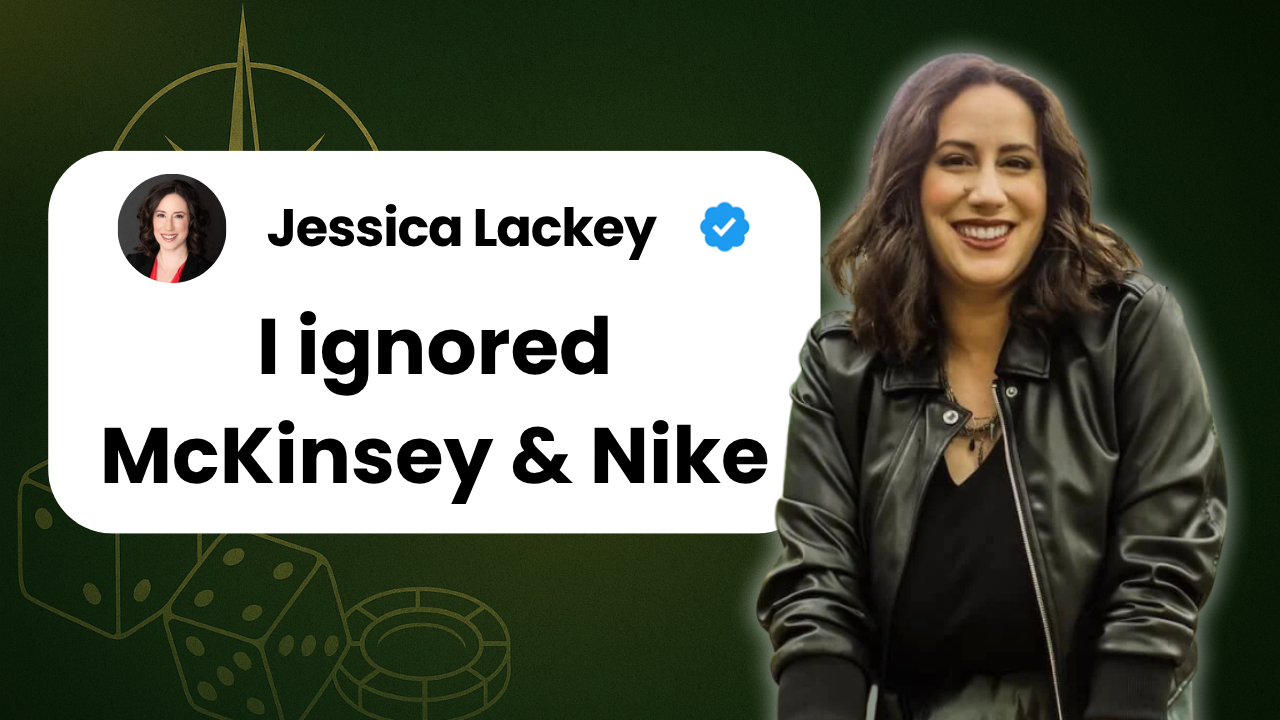
If you had the networks of McKinsey, Harvard Business School and Nike, you would think you would naturally tap into those networks to find clients for a new business, right?
For Jessica Lackey, the founder of Deeper Foundations, she has access to all of those networks. Yet she hasn't built her business off any of them. She started with just the local business community in Charlotte, North Carolina.
But that decision was intentional. Those impressive networks weren't the right fit for the business she wanted to build.
In this deep dive, I go over how Jessica built Deeper Foundations, a business growth strategy consulting business, to over $250k in annual revenue in 3.5 years. We'll explore why she decided not to use her high powered networks, her clever garden strategy for building multiple revenue streams and how she transformed her business from selling time to selling programs.
Let's dive in.
Check out Jessica’s new book, Leaving the Casino, here.
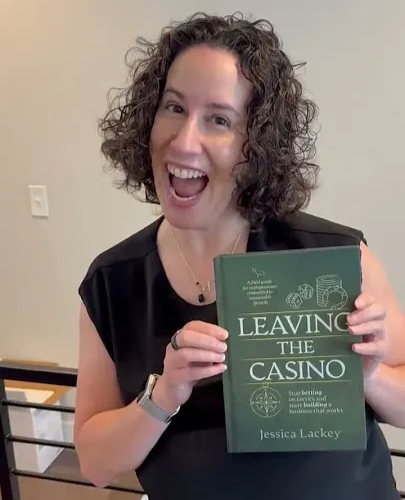
The Story of Deeper Foundations
Before Deeper Foundations
Jessica started her career by studying at Virginia Tech and Penn State to be an industrial engineer. After college, she ended up at a place many high achievers aim for: McKinsey & Company.
Not too shabby of a career start.
Eventually, Jessica found herself at Harvard Business School (HBS) and then transitioned to Nike where she worked in operations.
How many cooler logos can you get on a resume? Okay, you're right - could have gotten the iconic English D that the Detroit Tigers have. I digress.
At Nike though, she was burning out. In 2015, Jessica had a breaking point. As she described it, "I basically broke down in my boss's office, which was unpleasant for all of us." She was doing what should have been a two-person job by herself and when her team member went on paternity leave, it became a three-person job.
After some health issues and this burnout, Jessica decided to quit Nike to explore other options, eventually landing on becoming a health coach.
The Start of Deeper Foundations
Over a few years, Jessica tried all sorts of different coaching businesses. She got certified as a health coach, then as a life coach and even explored leadership coaching as a side hustle from 2015 to 2021.
If you've read other deep dives on The Quarter, becoming a health coach after being in corporate America might sound familiar because Sam Vander Wielen did the same thing.
Through all this experimentation, Jessica learned valuable lessons. She realized that you have to try things, even if you can't give your all to them at first. But during this time she was writing consistently, at least a couple of newsletters a month, which gave her the "messy first drafts" that would later help her business thrive.
Eventually, Jessica figured out her ideal type of work wasn't traditional coaching at all. Her strong suit was in operations and she wanted more control over her situation so she wouldn't burn out again. She also craved variety in her work.
The answer? Becoming a fractional Chief Operating Officer (COO) for smaller companies.
And it worked.
But then she did something that I don't think every founder does.
She started documenting everything she was doing for clients so that she could use that to create content.
That content could then be used for her own platforms like a newsletter, podcast, YouTube or LinkedIn content.
It also could be used to create course content so that Jessica wouldn't have to sell her time exclusively to make a living.
So over time, Deeper Foundations has evolved its business model on purpose from Jessica selling her time in a 1:1 format to more asynchronous or group models like her 6-month cohort program or even her new book.
Just in the last 6 months, Jessica was able to have a $25,000 launch for her 6-month cohort program and is already building a waitlist for this program for March 2026.
Could she have had that launch out of the gate? Probably not.
Think of your business as a garden
This model of starting with services and then slowly transforming it into a product type of business is clever, but what was more clever was the model Jessica explained to me that she put in her book.
It was a concept of the three sisters planting from the book, Braiding Sweetgrass.
You plant corn, squash and beans all at the same time.
As Jessica explained it, "your business is like a garden. Like you have the thing that makes you money, which is the corn. You have the thing that takes lower and slower to grow, which would be the squash. And then you have the thing that fills your cup and lets you give back, called the beans."
The corn grows fast so you have food in a quick manner. In this example, that would be Jessica's fractional COO business model because she just needs one client there to start having money to pay bills.
Squash grows at a medium rate and is the future nutrition. For Jessica, this was her cohort based programs and community. She wasn't able to sell those out of the gate because they weren't ready out of the gate. After several years, they were ready and now they're becoming more of the corn for Jessica.
And the beans are what you just give away. For Jessica, this is her free newsletter and podcast. Value that people want and don't have to give up much. In this example, just their email.
It's a really clever way to build a business because it automatically creates a revenue diversity. You have some stability but also areas that you're growing for the long term. It also doesn't all have to be planned perfectly either. You can give each the right amount of sunlight and water when you want them to grow.
And through this garden strategy, Jessica was able to go from $0 to $250k in annual revenue in 3.5 years.
Growth Strategies of Deeper Foundations
What's interesting about Jessica's growth strategies for Deeper Foundations is that it's exactly what she says on her website. She teaches founders "who are done gambling on surface-level tactics and hustle culture and want a practical approach to growth" and it's safe to say her growth strategies here are foundations, not just surface level tactics.
These strategies should work for most founders and do take time for them to start working, but when they do, you'll feel it.
Relationships
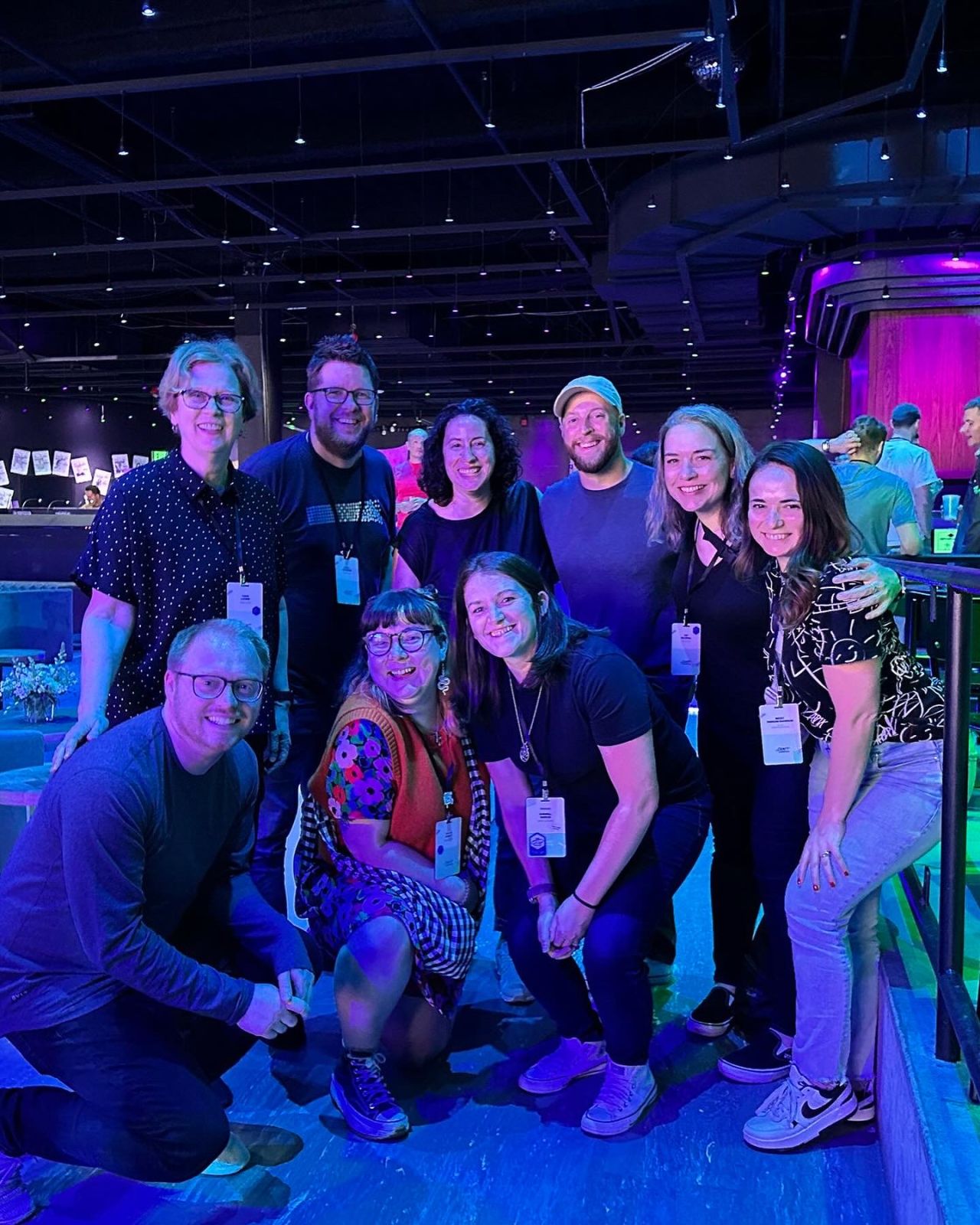
Jessica could have easily tapped into her networks from McKinsey, HBS and Nike to build Deeper Foundations. Those are impressive networks to be a part of.
But she didn't.
Her first client came from her local Charlotte area at a networking event where someone made an introduction.
Her networks at the big logos are great networks, but they weren't the ones Jessica needed to build her business. She wanted to work with smaller businesses who needed a COO and most of her networks at the big logos didn't have a need for a fractional COO. They needed full time COOs.
As Jessica put it, "I didn't actually wanna go the corporate route. I wanted to work with smaller organizations."
At the local level in Charlotte, the story is different. They don't have a need for full time COOs for small businesses in that area. They do need help in leading operations, but not in a full time capacity.
Your network fit matters.
Media
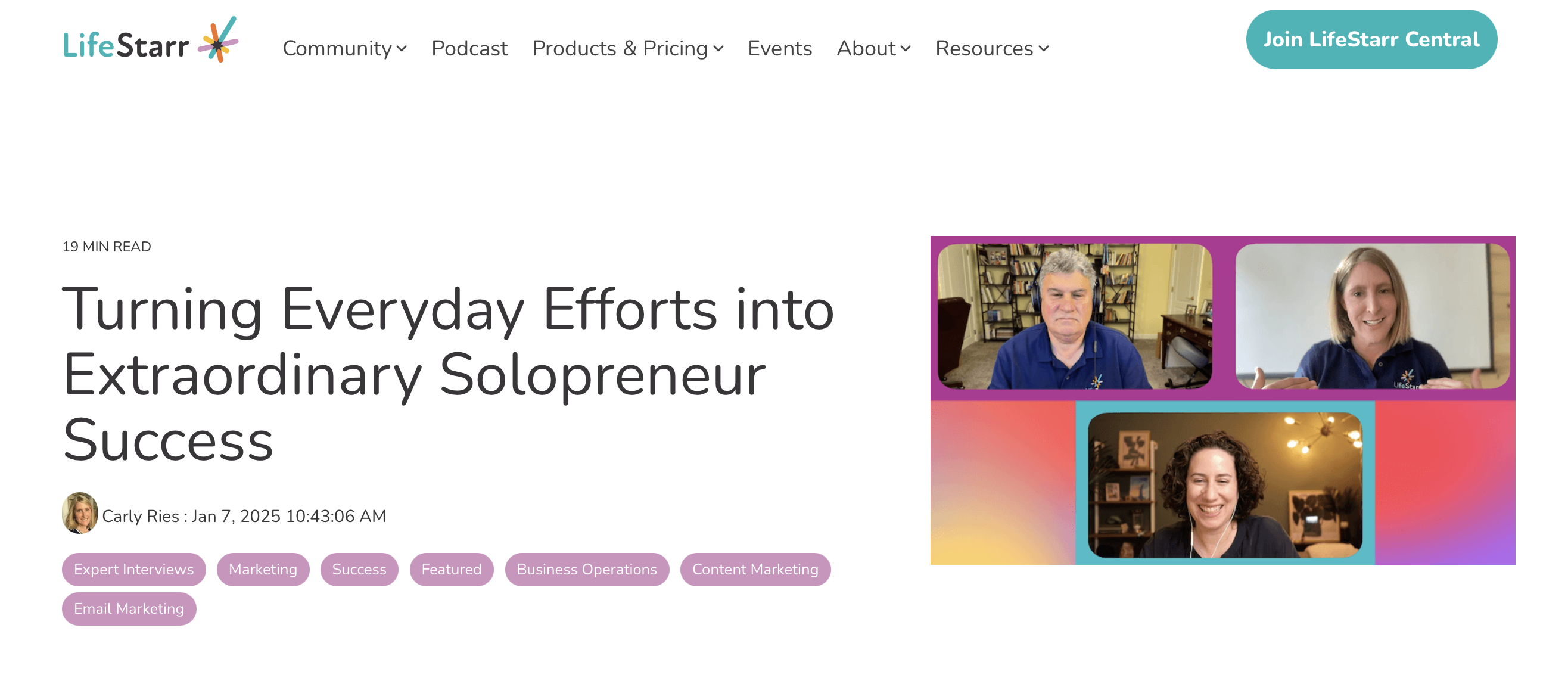
This one is interesting because Jessica isn't on any huge podcast episodes or didn't guest blog for any massive brand names (or at least none that I could find).
However, she did guest on about 30 different podcasts, taught in about 20 different online communities, wrote a handful of guest blogs and then partnered with other creators in Kit's creator network.
That's how she grew her email newsletter which then funnels people to her offerings.
Now, her email newsletter isn't just selling. It's valuable content and as Jessica has put it, it's treated more like a product rather than a marketing play.
In some ways, it's similar to how Sam Vander Wielen has built her newsletter. The second parallel to Sam's business in this deep dive!
And Jessica doesn't have a huge newsletter.
But she doesn't need a huge newsletter.
She just needed a few clients for 1:1 work to have a lucrative business and then now that the newsletter is growing to a few thousand people, the cohort programs that are around $1,800 can turn into a $25,000 launch pretty easily.
But that only happens with time and quality content to build trust.
And trust leads to sales.
Events
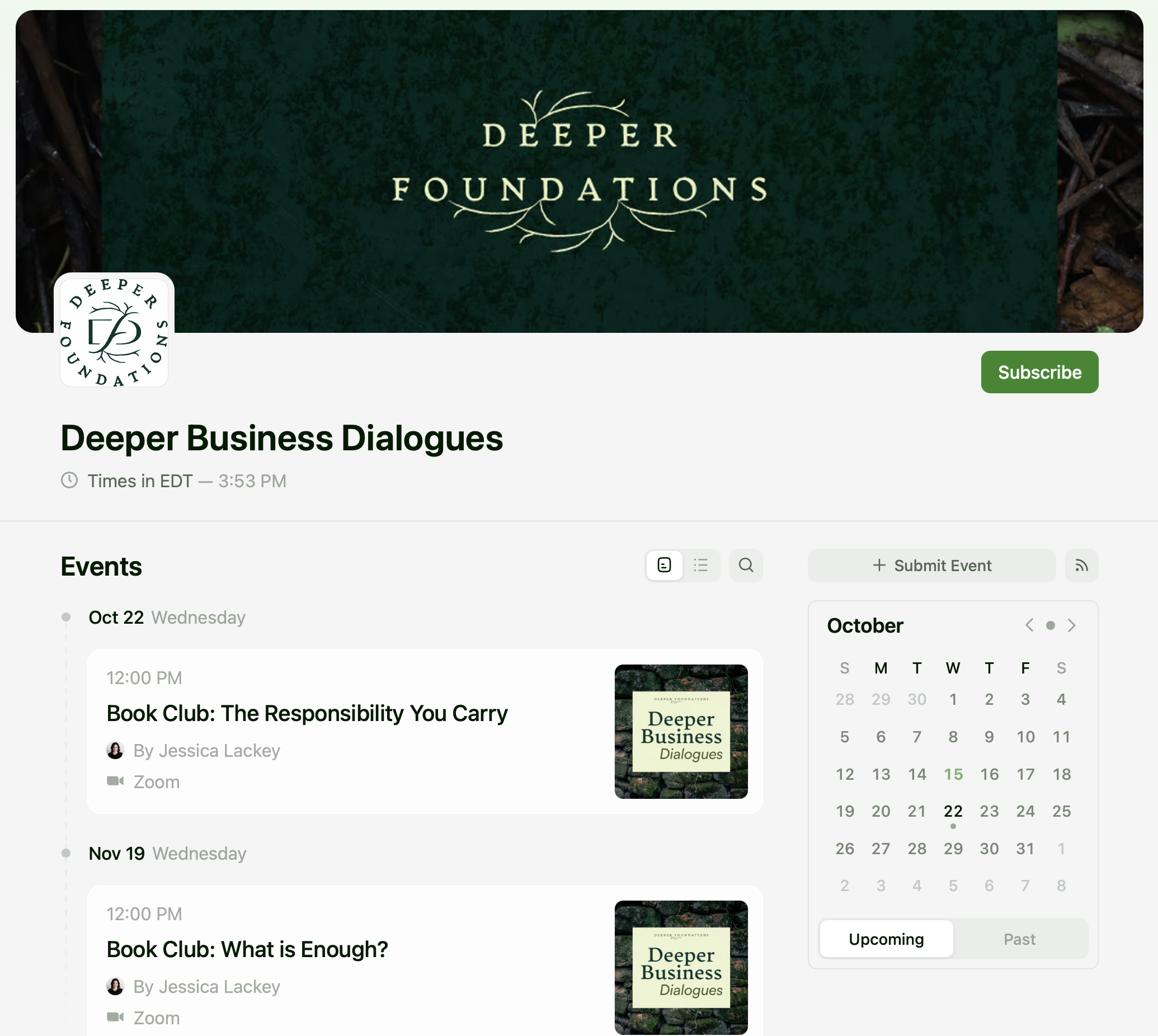
Here's where the trust really builds though: live events.
On a monthly basis, Jessica holds a live, virtual event.
She shares it via her newsletter and her own network. That's it. No fancy marketing.
And it's not fancy programming with big names either.
The next event Jessica is running is based on a chapter from her book. It's a framework from a chapter and in that free event, she'll walk everyone through that framework so they can make better strategic decisions in their business.
Again, nothing fancy and yet, it's still a key driver for revenue for Jessica.
Another proof point that if you're building trust with the right audience, you can build a strong business without a massive audience.

